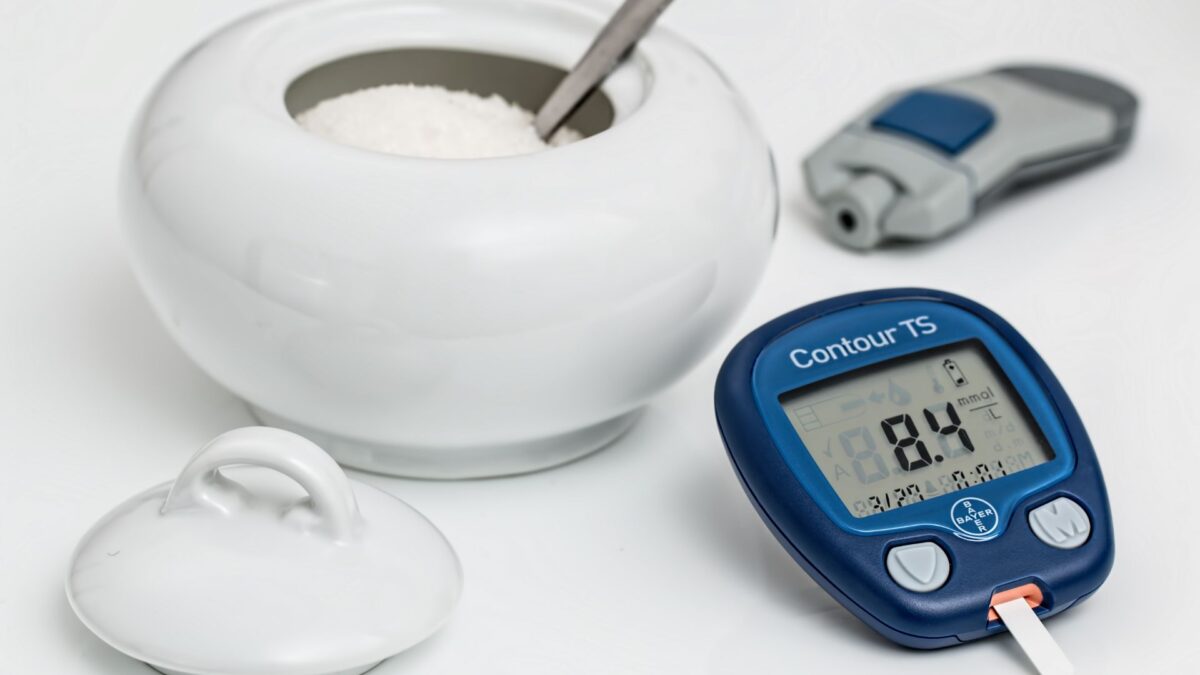How Diabetes Can Lead to Chronic Kidney Disease

Diabetes is a serious condition that can lead to a number of health problems, including chronic kidney disease. If you have diabetes, it’s important to be aware of the risk factors for chronic kidney disease and take steps to protect your kidneys.
Chronic kidney disease is a serious condition that can lead to kidney failure and even death. It’s caused by a number of factors, including diabetes. If you have diabetes, it’s important to be aware of the risk factors for chronic kidney disease and take steps to protect your kidneys.
In this post, we’ll discuss how diabetes can lead to chronic kidney disease and what you can do to prevent it.
What Is Diabetes?
Diabetes is a condition where your blood sugar levels are too high. It’s caused by the body not being able to produce or use insulin properly.
Insulin is a hormone that helps the body process sugar, which is the main source of energy for the cells. When you have diabetes, your blood sugar levels can become so high that it can damage your kidneys.
How Does Diabetes Affect the Kidneys?
You know that diabetes is a condition that affects how the body uses blood sugar. But did you know that it can also lead to chronic kidney disease?
Chronic kidney disease is a serious condition that can lead to kidney failure, and it’s one of the leading causes of death in people with diabetes. The good news is that there are things you can do to protect your kidneys, like keeping your blood sugar under control and getting regular checkups.
Your kidneys filter toxins from your blood and help keep your bodies balance of fluids and minerals. When they start to fail, it can cause a lot of problems. So it’s important to take care of them and get them checked regularly.
What Is Chronic Kidney Disease?
Diabetes is a disease that affects how your body uses blood sugar. If you have diabetes, your body can’t make or use insulin properly. This can cause high blood sugar levels, which over time can damage your body’s organs, including your kidneys.
Chronic kidney disease (CKD) is a condition in which the kidneys are damaged and can’t filter blood as they should. CKD is a common complication of diabetes. In fact, about one-third of people with diabetes develop CKD.
How Does Chronic Kidney Disease Progress?
You’re probably wondering how chronic kidney disease progresses. It can take a long time for the disease to develop, and there are several stages it goes through.
In the early stages, there might be no symptoms at all. The kidneys might still be functioning normally, and so you might not even know you have the disease. But as it progresses, the kidneys will start to fail. This can lead to a build-up of toxins in the body, which can cause a range of problems, including nausea, vomiting, and headaches.
Eventually, the kidneys will stop working completely, and you’ll need dialysis or a kidney transplant to stay alive. So it’s important to get tested for chronic kidney disease if you have diabetes—the sooner you catch it, the better your chances of avoiding these serious complications.
Who Is at Risk for Developing Chronic Kidney Disease?
You might be surprised to know that one in three Americans is at risk for developing chronic kidney disease. And the reason for this is diabetes.
In fact, diabetes is the leading cause of kidney failure in the United States. This is because high blood sugar levels can damage the kidneys over time, leading to chronic kidney disease.
Chronic kidney disease is a serious condition that can lead to kidney failure and even death. But it’s important to know that it can be treated if it’s caught early enough. So if you have diabetes, it’s important to get your blood sugar levels checked regularly and see your doctor if you start to experience any Symptoms of Kidney Disease
How Can You Prevent or Delay the Progression of Chronic Kidney Disease?
You might be wondering how you can prevent or delay the progression of chronic kidney disease. Here are five tips to get you started:
1. Control your blood sugar levels. This is one of the most important things you can do to protect your kidneys.
2. Exercise regularly. This helps keep your blood pressure and blood sugar levels under control.
3. Eat a healthy diet. This includes plenty of fruits and vegetables and lean protein. Avoid processed foods and sugary drinks.
4. Keep your weight under control. Obesity is a major risk factor for chronic kidney disease.
5. See your doctor regularly for checkups and screenings. Early diagnosis is key to getting the treatment you need to protect your kidneys.
Conclusion
Diabetes is a serious condition that can have a lot of complications, including chronic kidney disease. If you have diabetes, it’s important to keep your blood sugar under control to help prevent kidney damage. Talk to your doctor about the best way to manage your diabetes and keep your kidneys healthy.



